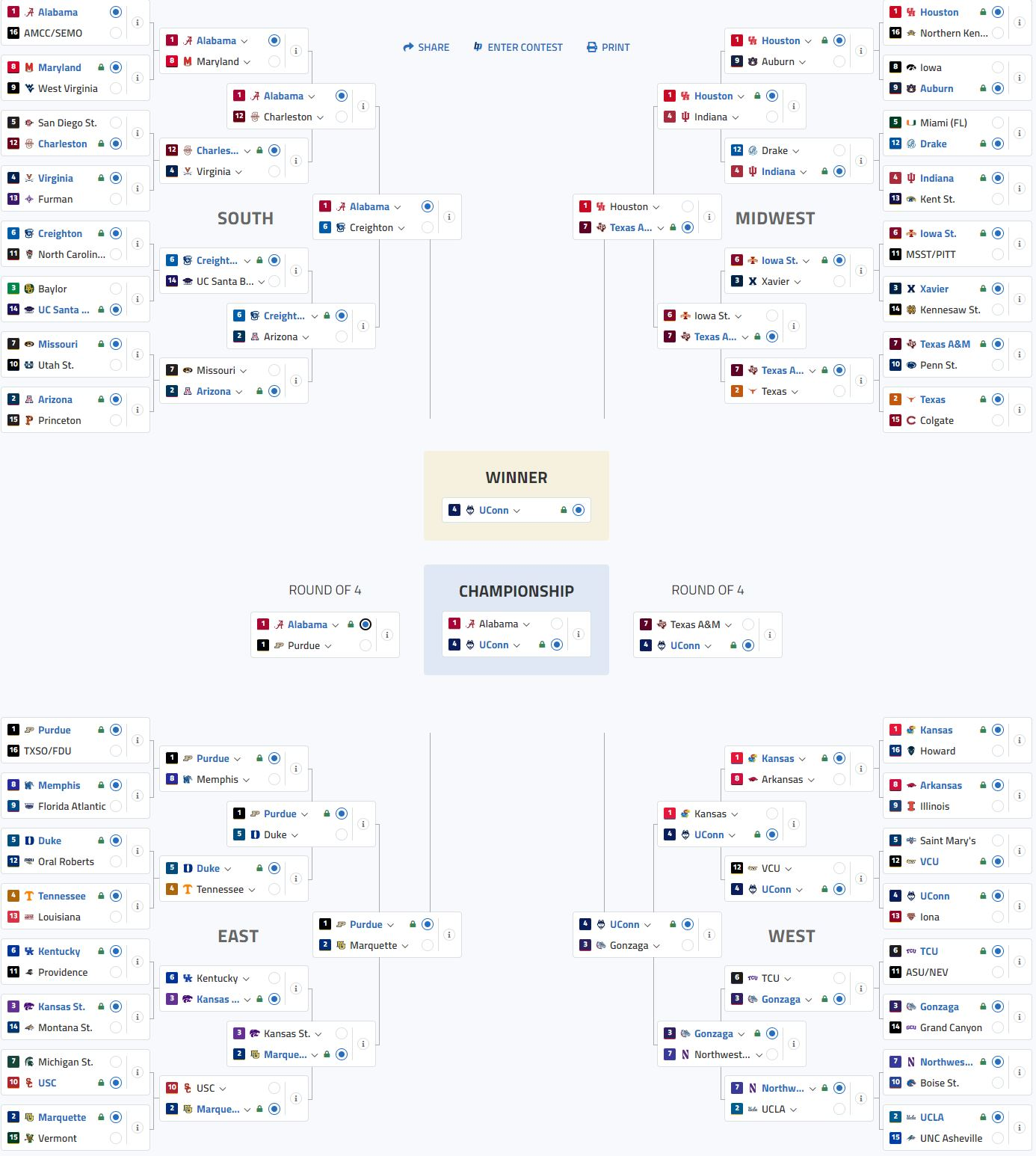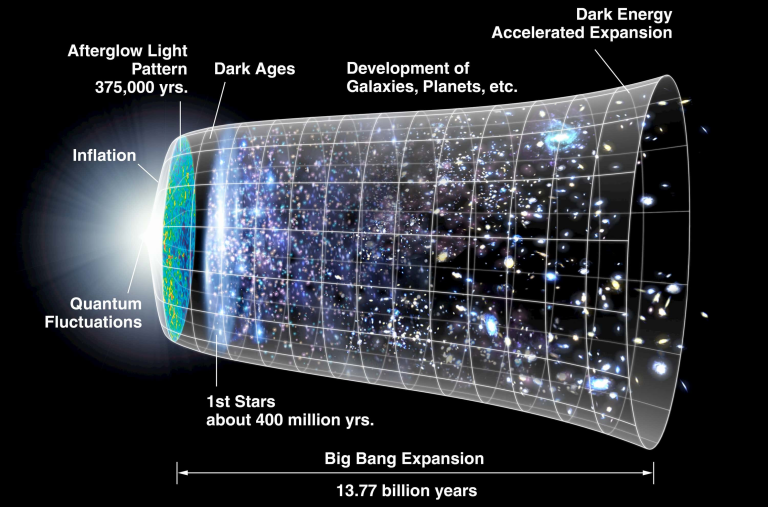When it comes to NCAA bracket odds, the competition during March Madness heats up as fans passionately engage in bracket challenges and vie for the ultimate prize: a perfect bracket. Statisticians suggest that achieving a flawless prediction of the NCAA tournament is more elusive than winning the lottery multiple times. With each match holding the potential for upsets, March Madness predictions become a thrilling yet daunting task for enthusiasts aiming to dominate their office pools. Understanding NCAA tournament statistics can help strategize picks, but it’s crucial to recognize the unpredictability of each game. Despite the odds stacked against perfection, the excitement of the tournament keeps fans coming back year after year, ready to try their luck once more.
The quest for an ideal NCAA tournament bracket captures the imagination of college basketball fans across the nation. During the exhilarating period of March Madness, individuals partake in various bracket competitions, eager to predict outcomes and possibly achieve that elusive perfect score. As many contemplate their strategies, winning office pools becomes a common goal, often hinging on the correct identification of upsets amidst the expected victors. The unpredictable nature of the tournament, as outlined by various statistics, adds to the challenge, but it also enhances the thrill of participation. For many, this annual event merges sports enthusiasm with mathematical strategy, leading to countless debates over predictions and outcomes.
Understanding NCAA Bracket Odds
When diving into the world of NCAA brackets, it’s essential to grasp the staggering odds that come with attempting to select a perfect NCAA bracket. Statistically, the probability of picking the right outcome for all 63 matches in a tournament is astronomically low—one in 2 to the 63rd power, which translates into a quintillion possible combinations. This means that the daunting task of achieving a perfect bracket is akin to winning the Powerball multiple times in a row. Given these odds, many fans turn their enthusiasm in unpredictable directions, often with little chance of success.
The sheer scale of possibilities in an NCAA tournament is part of what makes ‘March Madness’ so captivating, yet it’s also what makes accurate March Madness predictions so challenging. Despite the allure of bracket challenges and the excitement they generate, achieving a perfect bracket remains elusive. Instead, strategizing around NCAA tournament statistics and understanding team strengths can elevate your chances of securing a more realistic and competitive bracket.
Strategies for Winning Office Pools
Participating in a bracket challenge during March Madness is often a staple activity in office culture. However, winning your office pool isn’t just about picking the favored teams; it’s a complex balance of foresight and strategy. To gain an edge, participants should leverage NCAA tournament statistics and trends. The hidden key lies in identifying potential upsets—historically, lower-seeded teams often cause surprises, particularly in the earlier rounds of the tournament. Engaging in research and analyzing past performances can enhance one’s ability to make informed decisions.
Moreover, the number of entries in your office pool significantly influences your strategy. In larger pools, distinguishing your choices from others becomes critical to winning. While it may seem safer to stick with the favorites, integrating a few calculated upsets into your predictions can set you apart. Therefore, embracing creativity and logic—like treating some match-ups as a strategic gamble—might be the vital approach to outsmart the competition and potentially secure that first-place spot.
The Myth of the Perfect Bracket
Every March, fans globally enter the quest for the perfect bracket as the NCAA tournament unfolds, but the reality is that no one has ever achieved this seemingly holy grail of sports predictions. The odds outlined by experts like Kevin Rader reinforce the improbability of a flawless selection. Statistically, the chances of predicting all outcomes accurately are laughably slim, akin to some of the most unlikely lottery outcomes. This is why the notion of a ‘perfect bracket’ can often seem mythical—it’s a players’ dream rather than a realistic expectation.
This myth surrounding the perfect bracket also fosters a culture of hopefulness and excitement during the tournament season. Fans passionately discuss March Madness predictions, analyzing every team and matchup meticulously. However, the focus should perhaps shift from creating a perfect bracket to enjoying the competition, the upsets, and the surprises that make college basketball thrilling. Concentrating on the stories and moments of the tournament creates a more enriching experience beyond just the numbers.
Analyzing NCAA Tournament Statistics
Understanding NCAA tournament statistics is vital for any enthusiast engaged in bracket challenges. These statistics provide a historical backdrop against which predictions can be made. For instance, looking at how different seeds perform over time—especially during the opening rounds—offers invaluable insights. Teams that have a consistent track record of winning might tend to shine in early match-ups, which is a critical factor when making your selections.
Additionally, specific player performance metrics can serve as a guiding light in making educated predictions for March Madness. By analyzing statistics like field goal percentages, rebounds, and turnovers, fans can better assess which teams may have the edge. As upsets are part of the excitement, understanding past tournament trends and player analytics can significantly boost one’s ability to fill out a more competitive and realistic bracket.
The Role of Luck in Bracket Challenges
When it comes to NCAA bracket challenges and tournaments, luck often plays a significant role alongside strategy. Many participants step into March Madness with a mix of research and sheer hope. Despite thorough analysis and well-informed predictions, unexpected upsets can change the course of the tournament in an instant. This inconsistency brings a unique flavor to each challenge, underscoring that while skill is essential, a little luck can go a long way in winning your office pool.
Moreover, the unpredictable nature of March Madness is what keeps the excitement alive. Even the most seasoned participants can fall victim to a surprising outcome that changes everything. Emphasizing the importance of enjoying the experience, even amidst unpredictable results, creates a more engaging environment for fans. This blend of luck and strategy makes every March Madness season a thrilling phenomenon, encouraging fans to come back each year for more.
Predictions versus Reality: A Closer Look
Making predictions for the NCAA tournament can sometimes feel more like an art than a science. Despite advanced analyses and historical data, predicting outcomes accurately remains a formidable challenge. Successful bracket strategies involve understanding that while statistics inform choices, the unpredictability of teams’ performances can lead to outcomes that defy logic. As teams compete, they bring fresh narratives and dynamics that static statistics cannot fully encapsulate.
Additionally, viewers often find themselves torn between maintaining allegiance to their favorite teams and following statistical predictions. This conflict can lead to diverse brackets, with some fans choosing to follow their hearts while others lean heavily on data-driven rationales. Ultimately, acknowledging how both predictability and surprise play vital roles in shaping tournament outcomes emphasizes the unique emotional landscape of the NCAA March Madness experience.
Embracing Upsets in March Madness
Upsets are the heartbeat of March Madness, adding layers of surprise and excitement to the tournament. The thrill of watching a lower-seeded team topple a favored powerhouse is one of the most captivating aspects of the NCAA tournament. As brackets fill out, participants often weigh the potential for these surprises against traditional favorites, making educated guesses infused with excitement. Understanding historical upset trends can significantly inform strategy, as certain match-ups might signal opportunities for surprises.
To prepare for potential upsets, it’s vital to do thorough research and look for patterns between team performances against tough opponents. Factors like player fitness, match history, and team morale can drastically influence game outcomes. By being strategic with upset predictions—maybe selecting a few underdog teams while still backing strong contenders—fans can craft an exciting bracket that reflects both risk and reward.
Maximizing Your Bracket Challenge Experience
Participating in a bracket challenge is all about maximizing the enjoyment surrounding the NCAA tournament. While predicting match outcomes is a critical part of the experience, fostering a vibrant conversation around the challenges can amplify the excitement. Sharing insights with colleagues and friends before and during the tournament leads to richer discussions because of diverse perspectives. Emphasizing community engagement enhances the overall experience, as shared victories and defeats create collective memories.
Furthermore, approaching your bracket challenge with a sense of fun—rather than solely competition—can set a positive tone. Celebrating not only the correct predictions but also the unexpected turns of events can cultivate a spirit of camaraderie. Whether you’re running your own office pool or participating in a larger community challenge, valuing shared experiences will enrich your tournament journey beyond the final standings.
The Evolution of NCAA Tournament Predictions
Over the years, NCAA tournament predictions have evolved considerably, especially with the rise of technology and access to data analytics. In the past, fans relied heavily on intuition, team lore, or familial ties to various schools. However, as vast amounts of statistical information became available, fans have increasingly utilized sophisticated approaches to bracket predictions. This shift has transformed how people engage with March Madness, as they now have detailed insights to inform their decision-making.
As predictive models become more prevalent, the focus is shifting towards data-driven insights while still recognizing the essence of competition. Statisticians and analysts frequently share predictions and informative statistics, giving fans actionable insights into team dynamics. Hence, while learning from past tournaments remains crucial, blending this knowledge with innovative techniques fosters a more enriching and strategic experience during March Madness.
Frequently Asked Questions
What are the odds of predicting a perfect NCAA bracket?
The odds of achieving a perfect NCAA bracket are astronomically low, approximately 1 in 2,598,960 for a standard 64-game bracket. This is similar to winning the Powerball lottery twice consecutively. Historically, no verified perfect brackets have been recorded, highlighting the immense difficulty of March Madness predictions.
How can I improve my NCAA bracket odds during March Madness?
To enhance your NCAA bracket odds, focus on analyzing NCAA tournament statistics, including team performance, seedings, and historical trends. While picking favorites is essential, selecting a few strategic upsets can also significantly distinguish you in bracket challenges.
What strategies are effective for winning office pools with NCAA brackets?
Winning office pools with NCAA brackets requires a blend of chalk picks and calculated upsets. It’s crucial to differentiate your choices from others, especially in large pools. Reviewing NCAA tournament statistics and considering team dynamics can elevate your bracket predictions.
Are there any historical patterns in NCAA bracket outcomes?
Yes, NCAA tournament statistics reveal patterns, such as higher seeds typically winning in the first round. However, upsets are common, and being aware of these trends can enhance your March Madness predictions and inform better bracket choices.
What should I consider when joining bracket challenges?
When participating in bracket challenges, consider the size of the pool, your competitors’ tendencies, and historical NCAA tournament statistics. Balancing safe picks with a few well-researched upsets can give you a competitive edge in winning office pools.
Why is it so difficult to get a perfect NCAA bracket?
Achieving a perfect NCAA bracket is extremely difficult due to the unpredictability of tournament games. With 63 games to predict correctly and the presence of potential upsets, it is often viewed as unlikely to happen in anyone’s lifetime, akin to winning the lottery.
What are common errors to avoid when making NCAA bracket predictions?
Common errors in NCAA bracket predictions include solely picking favorites, ignoring key NCAA tournament statistics, and neglecting potential upsets. A balanced approach that incorporates both expert analysis and personal insights can improve bracket outcomes.
How do expert predictions influence NCAA bracket odds?
Expert predictions can influence NCAA bracket odds, providing insights into team strengths, weaknesses, and potential upsets. Utilizing these predictions, alongside your own research on NCAA tournament statistics, can enhance your overall bracket strategy.
What resources can I use to analyze NCAA bracket odds effectively?
To analyze NCAA bracket odds effectively, utilize resources such as statistical analysis platforms, expert insights, and historical data on NCAA tournaments. Websites dedicated to March Madness predictions often feature valuable analyses and tools to improve your bracket selections.
Is there a science behind winning NCAA bracket challenges?
Yes, there is a science behind winning NCAA bracket challenges, involving statistical analysis, understanding team dynamics, and recognizing patterns in NCAA tournament outcomes. Leveraging this knowledge can significantly improve your chances of success in bracket contests.
| Key Points | Details |
|---|---|
| Odds of a Perfect Bracket | Highly unlikely, estimated at 1 in 2^63 (quintillions). No perfect brackets reported. |
| Statistical Comparison | Similar odds to winning Powerball two times in a row. |
| Current Situation | Halfway through tournament; no remaining perfect brackets among the public entries. |
| Strategic Advice | Pick favorites but also select a few upsets to stand out in larger pools. |
| Team Discrepancy | Avoid random picks; lean towards better teams based on performance. |
Summary
NCAA bracket odds indicate that achieving a perfect bracket is essentially a ‘lottery win’ in terms of feasibility; the unimaginable odds make this a near impossibility for anyone during their lifetime. As highlighted by statistician Kevin Rader from Harvard, there has never been a reported perfect bracket in NCAA history, reinforcing the notion that luck, strategy, and careful selection play critical roles in navigating tournament predictions. To increase your chances of success in tournaments, focus on familiar strategies, such as picking favorites while distinguishing yourself through calculated upsets.





